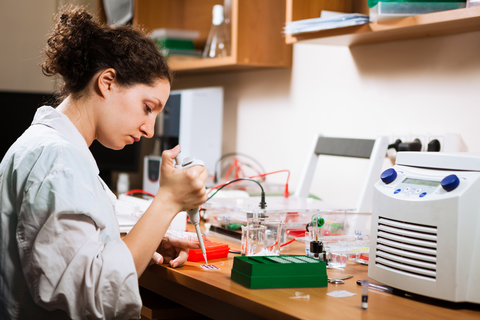University of Bristol part of European initiative to study diabetic kidney disease

University of Bristol researchers are part of a major pan-European €28.9m initiative that aims to improve the prevention and management of diabetic kidney disease, the leading cause of kidney failure in the world (University of Bristol, 2017).
BEAt-DKD (Biomarker Enterprise to Attack Diabetic Kidney Disease) is a unique five year public private partnership funded by the Innovative Medicines Initiative (IMI), member companies from the European Federation of Pharmaceutical Industries and Associations (EFPIA), the Juvenile Diabetes Research Foundation (JDRF) and the State of Switzerland.
BEAt-DKD will be led at the University of Bristol by Richard Coward, Professor of Renal Medicine in the School of Clinical Sciences. He is also the European co-lead in the experimental work, which explores the molecular mechanisms underpinning diabetic kidney disease. The project will allow the teams in the School of Clinical Sciences, led by Richard Coward together with Professor Moin Saleem and Dr Simon Satchell, to work closely together on this issue.
At the moment, there are no means to effectively prevent or cure diabetic kidney disease, which has reached epidemic dimensions and is the leading cause of end-stage renal disease. Diabetic kidney disease patients are a very sick population with mortalities exceeding most cancers and who are underserved by inefficient and unsuccessful drug development. Diabetic kidney disease remains a large unmet medical need.
Richard Coward said “BEAt-DKD will study thousands of patients affected with DKD across Europe. We hope to discover key factors that predict which patients will progress into kidney failure and require kidney dialysis or transplantation. The project also hopes to identify key pathways that may be manipulated to treat patients with this condition.”
Leading experts from twenty one academic institutions, six EFPIA pharmaceutical companies, one biotech company and JDRF launched BEAt-DKD on February 6th to provide a holistic systems medicine view of the pathogenesis and heterogeneity of diabetic kidney disease, with the goal to identify targetable mechanisms and pathways underlying initiation and progression of diabetic kidney disease, as well as to identify and validate biomarkers of disease progression and treatment responses, representing first steps towards precision medicine in diabetic kidney disease.
Maria Gomez, project co-ordinator and Professor at Lund University, said “We are very excited to have gathered so many brilliant and truly dedicated investigators, impressive materials and innovative techniques in this unprecedented joint effort to make a real difference for patients with DKD.”
Dennis Andress, project leader from Abbvie, said “This project represents one of the largest and most complete analysis of clinical data for identifying potential biomarkers for DKD and it will establish a new paradigm for precision medicine in the management of DKD.”
The BEAt-DKD team, coordinated by the University of Lund, Abbvie, Academisch Ziekenhuis Groningen, University of Helsinki and Sanofi, is committed to delivering better stratification of patients and more effective tools for use in innovative clinical trials, resulting in improved prevention and management of DKD, such as steps towards precision medicine. Other participants are the University of Oxford, University of Eastern Finland, University of Dundee, University of Exeter, Istituto di Ricerche Farmacologiche Mario Negri, Turun Yliopisto, Universitätsklinikum Freiburg, University of Leeds, University of Hull, CHU Hopitaux de Bordeaux, University Clinic Erlangen, Medizinische Universität Innsbruck, Klinikum der Universität Regensburg, Medizinische Universität Wien, Università degli Studi di Bari Aldo Moro, Lypotype, University of Michigan, Swiss Institute of Bioinformatics, JDRF International, Sanofi-Aventis, Astellas, Eli Lilly, Bayer Pharma and Novo Nordisk.
BEAt-DKD plans to build upon:
- Access to large observational prospective cohorts with comprehensive genetic analyses and rich longitudinal clinical and biochemical data and samples from patients with diabetic kidney disease.
- Vast expertise in the development and use of novel genetic, epigenetic, biochemical and physiological experimental tools and approaches including validated animal models of diabetic kidney disease for translational research.
- Extensive expertise in the development and validation of novel imaging approaches, the ability to combine existing and novel datasets through effective data federation and use of systems biology approaches towards precision medicine.
- Expertise in regulatory approval, health economics and patient engagement.
BEAt-DKD will also capitalise from extensive and unique resources developed by previous IMI and FP7 projects. Results from this project are expected to translate into patient benefits and decreased societal costs associated with diabetic kidney disease.







